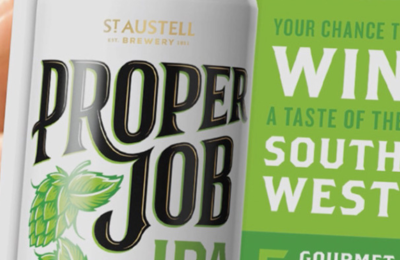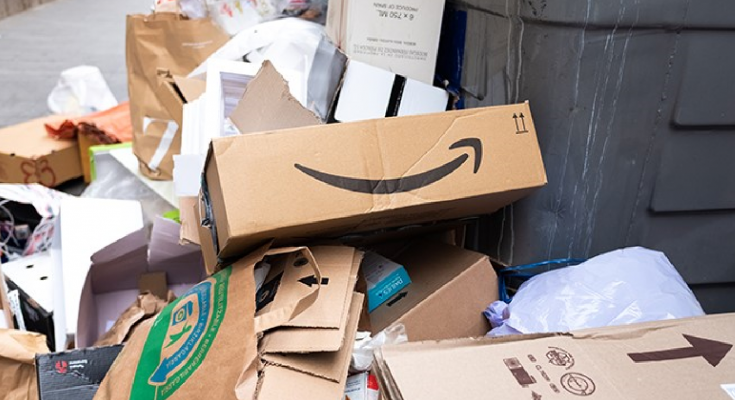Emily Sathianathan, Business Development Director at tbk, shares new research that reveals shoppers attitudes towards the future of retail.
The success of online retailer Amazon is unprecedented. In 1994 Jeff Bezos quit his job and launched Amazon out of his garage. Fast forward to 2020 and Amazon has revolutionised the way we shop the world over, selling over 3 billion products: books, groceries, memory foam travel pillows, exfoliating foot masks…the majority of which can be delivered to your door at a moment’s notice. Add this to its video streaming, music and audible services, as well as production and artificial intelligence capabilities, it has fast become one of the most influential economic and cultural forces in the world; changing the way we shop forever and offering the type of convenience we never dreamt possible.
As part of our Future of Retail research, we spoke to consumers to understand their changing shopping behaviours and what future retail looks like for them. They shared with us their thoughts on the ‘winners of retail’ and, unsurprisingly, Amazon was the clear winner of online but this didn’t come without reservation and reluctance. Answers like ‘Amazon, sadly’ and ‘Amazon, apart from their ethics’ were commonplace, raising questions over the place the brand now holds in consumers’ hearts.
News stories littered with tax avoidance, poor working conditions, environmental damage and market domination are bringing the brand’s ethics into question. All of this at a time when consumers are increasingly starting to question their own ethical and environmental responsibility.
Online shopping feeds our inpatient desire to want everything now. We buy items as individual purchases, opting for premium delivery services that can deliver items to us in the shortest time period possible. Cue millions of delivery trucks driving around the country, pumping their harmful emissions into the air and Antarctica reaching Mediterranean-level temperatures.
Packaging too has reached a crisis level with the packaging requirements for online shopping deliveries in the US alone equating to 1 billion trees being cut down in just 1 year. But at least we still have Alexa to keep us informed of every catastrophic environmental event.
Black Friday, the American export brought to us by Amazon and quickly adopted by many others, is also experiencing the same criticism with shoppers seeing through the hype and questioning the legitimacy of the discounts on offer, as well as being turned off by the constant messages from retailers tempting us to buy products we don’t need, with money we don’t have. The consumers we spoke to have certainly fallen out of love with the holiday, with only 10% of people loving it and believing there are big savings to be made and 51% either believe it is a con or it persuades people to spend unnecessarily.
Activists across France staged Black Friday protests against Amazon last November, blaming the retail giant for its detrimental impact on the environment. Amazon ships over 10 billion packages per year globally and with Black Friday causing a major peak in sales, the carbon footprint during the period is vast.
We are experiencing a period of shopping consciousness, as consumers increasingly understand the importance of their shopping choices with a backlash against hyper-consumerism, unnecessary spending and a shift towards taking responsibility for the impact each purchase decision has on the world we live in.
Now, this might sound like a lengthy trolling of Amazon, it’s not intended to be, they are simply the biggest player in what is a universal problem regarding the detrimental effect modern-day retailing is having on our planet, and as the biggest player, their competitors follow suit, exacerbating the scale of the problem. But with immediacy and convenience so embedded in our daily lives can we ever change our behaviour? If the desire is there from consumers to still shop in this way, then there is still a need to be fulfilled by the likes of Amazon.
Despite the constant requirement for more convenient shopping solutions, there is definitely a seismic shift in consumer thinking that companies would be foolish to ignore. Shoppers are no longer happy to shop in blissful ignorance, hiding away from the environmental impact their purchase decisions have. Could Amazon actually be the saviour here? Imagine if Amazon made a real attempt to help alter this behaviour by changing how they operate? Could this be enough for shoppers to forgive them and make our planet smile again?
To read more about what consumers think is happening in UK retail today and tbk’s predictions for the future, download our tbk’s Future of Retail Report 2020 at https://tbkagency.com/future-retail-report-2020 or contact Emily Sathianathan at Emily@tbkagency.com





















